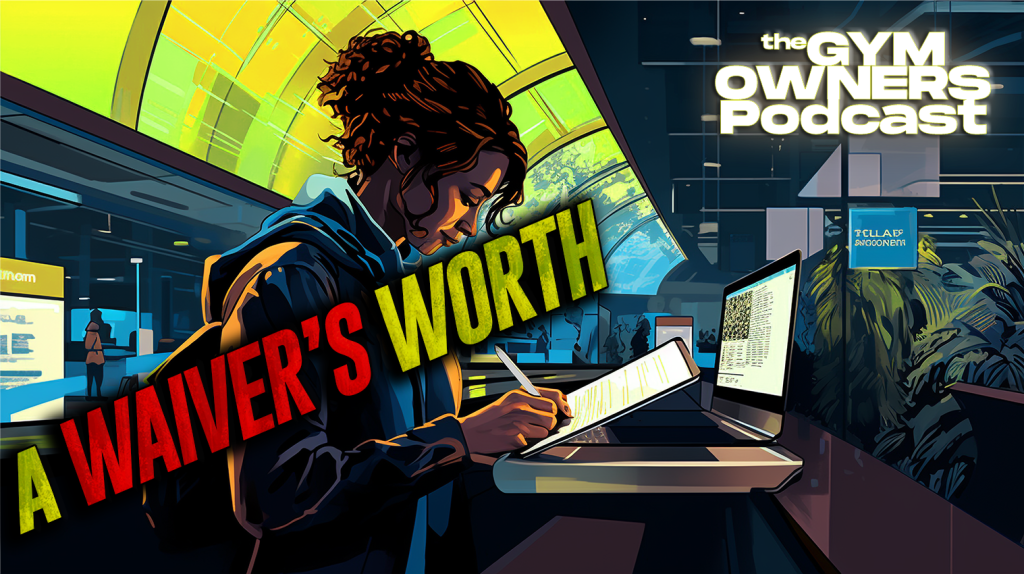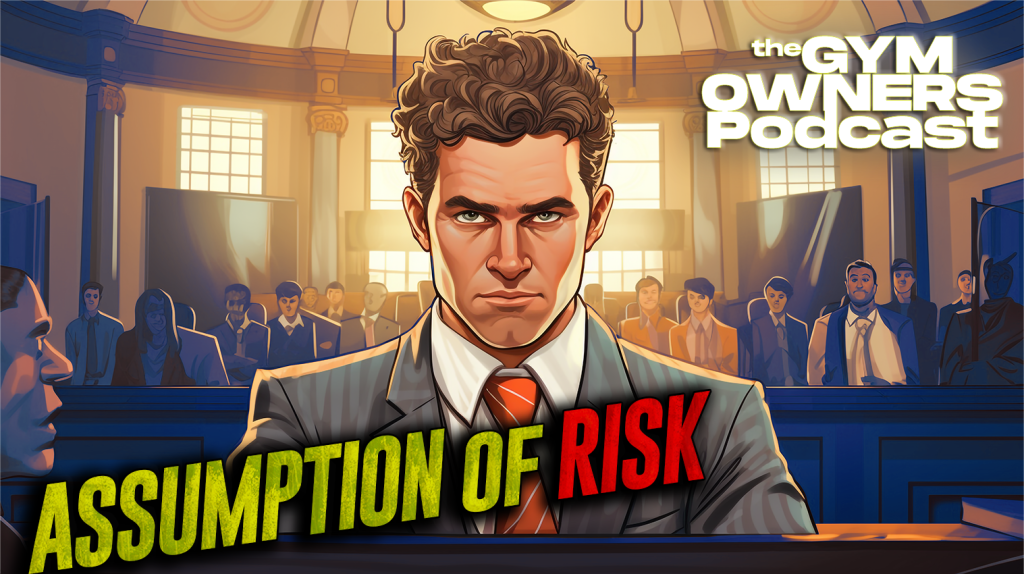Part 1: Waiver Law and Assumption of Risk
We know protecting your gym and personal training business from lawsuits is a top concern. That’s why our podcast team recently interviewed Dr. JoAnn M. Eickhoff-Shemek, Founder and President of the Fitness Law Academy, LLC and Professor Emeritus, Exercise Science, at the University of South Florida. AKA “Dr. JES” is the author of “Law for Fitness Managers and Exercise Professionals,” and is internationally known in the areas of legal liability, risk management and fitness safety. This blog is the first in a series summarizing our incredibly interesting conversation. We hope our series enlightens you on what your fitness business can do to decrease the chances of getting sued.

A Waiver’s Worth
Q: My clients sign waivers. Isn’t that enough to keep me from being found liable?
Yes and no, Dr. JES says. Liability depends on the waiver and the circumstances surrounding the injury. Waiver law is complex and based on state law. In most states they are effective at protecting defendants against ordinary negligence. Yet, in both New York and Virginia, waivers are against public policy and not enforceable for personal injury cases. Ultimately, the goal of a waiver is to protect you and/or your personal trainers/staff against their own mistakes. However, as waivers are based on state law, it’s best to have yours prepared by your legal counsel so you are confident it is enforceable if ever tested in court.
Q: Will a well-written waiver keep me from being liable in a negligence lawsuit?
It may, but it may not, depending on the circumstances surrounding the claim. Waivers protect against ordinary negligence, not gross negligence. This is sometimes also called willful, reckless or wanton negligence. Gross negligence is when the trainer/owner/staff knows something is a risk and does not pay attention to it. The fancy phrase is “prior knowledge.”
For example, In a case cited by Dr. JES, a trainer asked a client to do a new exercise. At the end of the set, the client became nauseous and symptomatic. Even though the trainer allowed the client to rest, he then asked him or her to do it again. After the second set, the client ended up with a serious injury and sued the trainer and club for gross negligence.

Assumption of Risk
Q: What can gym clients sign in place of a waiver?
In states where waivers are not enforceable, or in cases where your attorney suggests an extra layer of legal protection, an express assumption of risk document is the next best thing, Dr. JES says. This strengthens the primary assumption of risk defense, which is when a person knows the risks involved with the exercise and voluntarily assumes them.
In the case of beginners, though, even a well-written, legally reviewed assumption of risk document may not work as a defense. Anyone new to your gym, or to the exercise they are undertaking, should be provided extensive instruction. This way, they understand the risks involved with the training. If you fail on that point, the assumption of risk may not hold up in court.
Q: Am I liable if a personal trainer hurts someone in my gym?
It depends on whether they are an independent contractor or an employee. Gyms sometimes get in trouble here, she says, because they accidentally misclassify an employee as an independent contractor. If you have a lot of control over that person, the IRS may consider them an employee. That distinction can come back to haunt you if it is determined that the personal trainer is actually an employee in the eyes of the law. However, if they are a bona fide independent contractor, in many cases, they would be liable for an injury to the client.
But this is where the law gets tricky and legal issues arise. Think of a scenario where the trainer is having the client work on equipment that has not been well maintained according to specifications – then both parties could be liable. Additionally, depending on the contract you signed with the personal trainer, that trainer could also come back and sue you for not properly maintaining the equipment.
Yuck – that’s complicated.
To hedge your bets, make sure any agreement between you and an independent contractor is in writing, signed by both parties, and reviewed by legal counsel.

Q: How can I lessen the risk of lawsuits in group training classes?
The absolute best way, according to Dr. JES, is to provide a beginners level of every class you offer. This way, members are aware of the risks of an activity and can confidently move into a higher-level class with less supervision and oversight once they gain confidence and skills.
If offering a beginners class is not possible, here are three recommendations:
- Institute an expectation of one-on-one instruction prior to every class for beginners. This can look like asking new members to come in 20 minutes prior to class to go over the basics, using a formal checklist to ensure nothing is missed.
- Make sure instructors are highly qualified and are capable of instructing beginners, as well as providing exercise modifications while running the class.
- Expect instructors to teach beginners why we warm up, monitor intensity, cool down, and modify exercises.
All these basic, common-sense approaches can help mitigate risk for the owner, create an environment that feels safe for newer exercisers, and encourage their return to your gym.

Q: What’s Next from Dr. JES?
Stay tuned for Parts II and III of this blog. In these we will go over how you can create a Culture of Safety and reduce the chances of being found Guilty by Negligence. If you want to hear the entire podcast, or would like to review key information, go to our YouTube channel, and listen to our series on the Gym Owners Podcast. This blog recently featured Dr. JES as a guest blog author.
Gym Insight
We hope you’ve found Dr. JES as compelling as we have. Your gym and its future are the driving force behind our gym management software product. Ensuring your gym runs on best software available is our passion. And since we were all gym owners or fitness professionals before jumping into the tech design business, we know the trials you face as an independent operator. That is why we’ve produced blogs since 2011 with the sole purpose of educating and helping gym owners.
Here are other articles we’ve published on liability and risk management:
https://blog.gyminsight.com/9214-health-club-owner-manager-is-the-risk-management-manager/
https://blog.gyminsight.com/633-risk-management-for-fitness-facilities/
https://blog.gyminsight.com/6553-ughbuying-gym-insurance/
https://blog.gyminsight.com/6668-preventing-lawsuits-brought-by-employees-and-subcontractors/
